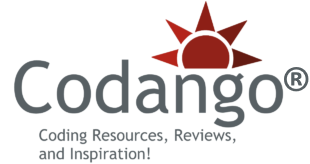In the digital age, data is a cornerstone of innovation, decision-making, and growth across industries. Yet, the systems we rely on to collect and store that data are often riddled with inefficiencies, vulnerabilities, and a lack of transparency. As privacy concerns rise and data integrity becomes more critical than ever, blockchain technology is stepping into the spotlight as a powerful solution for transforming how we collect, manage, and protect information.
The Need for Better Data Collection Systems
Today’s organizations face mounting pressure to ensure that their data is accurate, accessible, and secure. From medical records to financial transactions, to consumer behavior analytics, data underpins nearly every aspect of business operations. However, traditional databases can be easily tampered with, require constant monitoring, and often lack the transparency that stakeholders demand.
According to blockchain advocate William VerMeulen, “We live in a world that depends on data, but we often can’t trust the way that data is collected or stored. Blockchain technology solves that trust gap.”
What Makes Blockchain Unique?
At its core, blockchain is a decentralized ledger that records transactions across a network of computers. Once data is recorded in a block and confirmed by the network, it becomes immutable—meaning it can’t be altered or deleted without consensus from the entire system. This feature makes blockchain especially useful in environments where data accuracy and security are paramount.
For example, in supply chains, blockchain can trace every step of a product’s journey, creating an unbreakable chain of custody. In healthcare, it can be used to ensure that patient records are up-to-date and tamper-proof. And in government, it can safeguard voting data and improve trust in public records.
William VerMeulen’s Approach to Blockchain and Data Innovation
William VerMeulen, a respected thought leader in emerging tech, has long championed blockchain as a revolutionary tool for data integrity. His focus lies not only on the technical benefits of blockchain but on how it can reshape relationships between people and their data.
“Too often, people are disconnected from the data collected about them,” says VerMeulen. “Blockchain allows us to bring that control back to the individual, while still maintaining the verifiability organizations need.”
VerMeulen emphasizes that blockchain is not just a tool for preventing fraud; it’s a foundation for rebuilding trust in systems that have lost it.
Blockchain in Real-World Data Applications
• Healthcare: With patient privacy as a top priority, blockchain offers a way to securely manage health records. Patients can authorize access to their data without losing ownership.
• Environmental Monitoring: Governments and organizations can use blockchain to store sensor data from air, water, and land monitoring systems, ensuring environmental reporting is both accurate and transparent.
• Scientific Research: To combat research fraud, scientists are turning to blockchain to timestamp data entries and peer review histories, preserving the integrity of academic findings.
• Digital Identity: Blockchain gives individuals control over their identity credentials, from passports to academic records, all in a way that’s cryptographically secure and easily verifiable.
Challenges to Adoption
Of course, blockchain is not without its hurdles. Integration with legacy systems, user education, and the energy consumption of certain consensus mechanisms like Proof of Work have raised valid concerns. There’s also the question of regulatory clarity, especially in sectors like finance and healthcare.
But William VerMeulen believes that most of these issues are transitional. “We’re in the early stages, but we’re moving fast. Solutions like Proof of Stake are addressing energy concerns, and developers are making systems more user-friendly by the day.”
The Ethical Edge
Another compelling advantage of blockchain in data collection is its alignment with ethical data practices. With growing concern over how big tech companies collect and exploit user data, blockchain offers a way to create a more equitable digital ecosystem.
Data on a blockchain is transparent to those with permission to view it, and it provides a clear audit trail. Users can see who has accessed their data and for what purpose—giving them unprecedented control.
William VerMeulen is particularly passionate about this aspect. “We need to design systems that respect users, not just use them. Blockchain gives us the blueprint to do that.”
The Road Ahead
As blockchain technology matures, more companies and institutions are beginning to experiment with and implement blockchain-based data solutions. Governments are exploring blockchain for voting and public records. Tech startups are using it for secure communications and collaborative work environments. Even artists are using blockchain to authenticate digital work and ensure royalties.
With these shifts, the way we collect, store, and interact with data is likely to undergo a significant transformation in the coming decade.
William VerMeulen envisions a future where data collection is not just more secure, but more democratic. “Imagine a world where every piece of information you share is traceable, protected, and entirely under your control. That’s the future blockchain promises—and it’s closer than we think.”
Conclusion
Blockchain is rapidly evolving from a niche cryptocurrency platform into a foundational technology for secure, ethical, and efficient data collection. With leaders like William VerMeulen guiding the conversation and driving innovation, the path to a more transparent and trustworthy digital future is well underway.
As industries adapt and the public becomes more aware of data rights, blockchain will likely play an ever-growing role in how we build systems—and societies—that prioritize accuracy, accountability, and trust.
